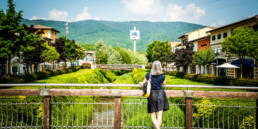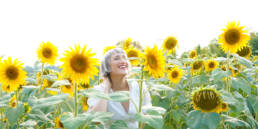 Once again it’s Italy Blogging Roundtable time, and this time my colleagues have come up with a helluva topic: Drinking (and/in Italy). I will tell you why I find this to be a difficult topic, and then talk about what it’s like to be a non-drinker in this country.
Once again it’s Italy Blogging Roundtable time, and this time my colleagues have come up with a helluva topic: Drinking (and/in Italy). I will tell you why I find this to be a difficult topic, and then talk about what it’s like to be a non-drinker in this country.
1) Water: I am not an authority on drinking of any sort, except, perhaps, on the consumption of water (in Italy, and elsewhere). One thing I’ve always told visitors is that the tap water is perfectly safe to drink anywhere in Italy, even if in some areas it has a funny taste. In Florence, they’ve recently installed purified water distributors which I’ve blogged about here, and make a point of using to avoid wasting plastic. But water, in any case, is pretty much the only liquid I drink. And I can’t think of anything more boring about which to read.
2) Coffee. There are some bloggers who are authorities on coffee, like Sara Rosso, who has actually written a book about How to Order an Italian Coffee in Italy. I, on the other hand, don’t drink coffee. Oh, don’t get me wrong, I would love to. Just that stimulants have been pretty much cut out of my diet for medical reasons (I still can’t say no to chocolate, but out with coffee).
3) Wine. A post about wine in Italy would be wonderful. The problem is, I don’t drink any alcohol. See section 2, stimulants. No-go.
4) Juice. I don’t make juices, that’s too lefty-vegetarian-time-consuming for my lifestyle. But I do drink juice occasionally. It’s a good alternative to water, when you don’t drink wine, coffee, or anything with fizz or added sugar… Luckily in Italy all bars carry yummy juices like pear juice, which I sometimes use as a substitute for an afternoon snack. But you can’t make an article out of that.
So, I don’t drink (alcohol). In Italian they say “sono astemia” which means “I am a teetotaler“, a word that probably 80% of the non-UK English-speaking population has never heard. The very fact that there is a word in common use to describe the condition of not drinking, that does not conjure up images of an auntie with a doily-covered armrest, is a positive thing.
Generally I say this phrase – “sono astemia” – with an apologetic smile while turning over my wine-glass at a dinner table or refusing a handout of spumante at a toast. Used to the routine quip “but it’s bad luck to toast with water”, I have a standard answer (“I toasted with water at my wedding and am still married”). Anyway, at my age, a woman who refuses a drink is assumed to be pregnant, so I figure I can run with that for the next 15 years or so. Many, upon learning that I don’t drink and am not pregnant, think I am a virtuous health nut (combine this with my vegetarianism and you can see where they might think that), but I do my best to dispel this myth and encourage them to eat steak and drink red wine as much as they wish.
There are cultures in which not drinking is easier than in others, I believe, and Italy is not too bad for a teetotaler like me, despite what you might think about the country’s love of wine. In fact, while Italy and France produce a lot of wine, the number of adult Italians who declared, in a recent survey, to be “astemi” (who do not drink) is a whopping 39% (source). And although their young people are starting to catch on to binge drinking, the consumption of alcohol pro-capita is lower than the European average (8.02 liters of pure ethyl alcohol per person per year vs the EU average 11.6 – the UK is at 11.67) (source). This low average is likely related to the tradition of pairing (good) food and wine at table, where the majority of alcohol consumption takes place in this culture, rather than away from meals.
I don’t want to get into stereotypes or a discussion of the merits of one or another culture, but rather wish to make just one, small observation: not drinking in Italy is much less remarkable than not drinking in the States, Canada, or England. The announcement engenders little surprise, some good humour, and total respect, and the conversation continues.
Italy Roundtable on Drinking
Read the posts, leave comments, share them with your friends – and tune in next month for another Italy Blogging Roundtable topic.
- Jessica – When “Il Solito” is Italy’s Sweetest Phrase
- Gloria – Alchermes: the taste of the holidays
- Rebecca – Italy Roundtable: A Drink for All Seasons
Sign up to receive future blog posts by email
Alexandra Korey
Alexandra Korey aka @arttrav on social media, is a Florence-based writer and digital consultant. Her blog, ArtTrav has been online since 2004.
Related Posts
December 31, 2023
How sewing saved my sabbatical
April 30, 2022




